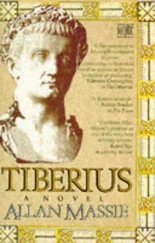Allan Massie - Nero_s Heirs
Здесь есть возможность читать онлайн «Allan Massie - Nero_s Heirs» весь текст электронной книги совершенно бесплатно (целиком полную версию без сокращений). В некоторых случаях можно слушать аудио, скачать через торрент в формате fb2 и присутствует краткое содержание. Жанр: Исторические приключения, на английском языке. Описание произведения, (предисловие) а так же отзывы посетителей доступны на портале библиотеки ЛибКат.
- Название:Nero_s Heirs
- Автор:
- Жанр:
- Год:неизвестен
- ISBN:нет данных
- Рейтинг книги:3 / 5. Голосов: 1
-
Избранное:Добавить в избранное
- Отзывы:
-
Ваша оценка:
- 60
- 1
- 2
- 3
- 4
- 5
Nero_s Heirs: краткое содержание, описание и аннотация
Предлагаем к чтению аннотацию, описание, краткое содержание или предисловие (зависит от того, что написал сам автор книги «Nero_s Heirs»). Если вы не нашли необходимую информацию о книге — напишите в комментариях, мы постараемся отыскать её.
Nero_s Heirs — читать онлайн бесплатно полную книгу (весь текст) целиком
Ниже представлен текст книги, разбитый по страницам. Система сохранения места последней прочитанной страницы, позволяет с удобством читать онлайн бесплатно книгу «Nero_s Heirs», без необходимости каждый раз заново искать на чём Вы остановились. Поставьте закладку, и сможете в любой момент перейти на страницу, на которой закончили чтение.
Интервал:
Закладка:
'Really,' he said, 'if you are murdering an emperor, it's an excess of delicacy to worry about the abuse of hospitality.'
That bon mot was often quoted, subsequently; 'excess of delicacy' became a sort of catch-phrase, as in, for example, 'It would be an excess of delicacy not to bugger that boy.'
Curiously, however, I believe that Lucan's admiration for Piso was enhanced rather than diminished by this evidence of his leader's scruples. I even once heard him compare Piso to Marcus Brutus, his Republican hero. Not that Brutus showed any 'excess of delicacy' when despatching Julius Caesar on the Ides of March.
The second plan was apparently to dispose of Nero in his box at the Games. One of the conspirators would approach him, and throw himself at his feet as if begging a favour. Then he would seize Nero's ankles and pull him to the ground to allow his fellow-conspirators to rush in with their daggers. No doubt the intention was that they should then all leap up crying that Liberty had been restored to Rome.
Even as a boy I could see that this imitation of the murder of Julius was grotesque. I could imagine Titus laughing aloud when he read my account of what was proposed, before inveighing against the folly of the times. Lucan on the other hand was offended when I told him that this scheme was ridiculous and could never succeed.
In short the whole thing was amateurish. It would have been discovered even if Lucan had never blabbed to me and if I had not recounted all he said in my letters to Titus. As it happens, I have never known whether Titus made any use of my information.
I can't recall now how many executions took place when discovery was finally made. The story circulated that the conspiracy was revealed by a freedman in the employment of Flavius Scaevinus, who had volunteered (as had others, including, by his own account, Lucan) to strike the first blow. It was said that in his excitement he had blabbed at his own dinner-table. Perhaps so. It was certainly convenient that a freedman should be held responsible.
What is certain is that investigations ordered by the Emperor were first conducted by Faenius Rufus, who shared command of the Praetorian Guard with Tigellinus, the most disgusting of Nero's creatures, and a colonel of the Guard called Subirius Flavus. Both men were actually privy to the conspiracy. Yet, in their degenerate panic, they did not hesitate to connive at the torture and subsequent execution of their comrades. I am not sure if Tacitus knows this; Faenius Rufus, who was connected in some way with my friend's revered father-in-law Agricola, was by way of being a hero of his. So he may not be ready to admit his depravity to his record of history. Even the most scrupulous works of history are deformed by personal affections, and personal prejudices.
Word went round that Nero asked Subirius Flavus, when his role in the conspiracy was at last uncovered, why he had broken his oath of loyalty, and that he had replied; 'Because I hate you. I remained as loyal as anyone while you deserved my loyalty. But I turned against you when you murdered your wife and mother, and became charioteer, actor and fire-raiser.' Domitian was much impressed by the nobility of this reply. 'It sounds to me,' I said, 'like something invented by his friends.'
Lucan was ordered to kill himself, and obeyed. He would have described his act as an example of Republican virtue. I thought it contemptible, even then.
Now? Yes, it still seems contemptible, a piece of play-acting. But I despise it less than I did, because to abandon hope and yield to what appears to be necessity, is only too easily understandable.
V
My dear Cornelius Tacitus: You reproach me for my tardiness, and also for the quality of the information I have sent you. You do not realise how painful it is for me, marooned in this frontier region, to cast my mind back to the days of my youth. Even the image of afternoon dying in the Gardens of Lucullus and the setting sun turning the pine trees of the Palatine a soft dusky purple-blue disables me for hours. And when in memory's ear I listen to the babble of the streets and the raucous cries of the stall-holders calling to customers, I am seized with so sharp a pang of nostalgia that I dissolve in tears or drown my sorrows in a flask of sour wine. And I have other distractions here, though I shall not weary you with an account of them.
You say – having first asked me for memories of Domitian's childhood – that this does not interest you now, and that what you wish to learn is what he did and how he conducted himself in the terrible months that followed the revolt of the legions against Nero.
But how can I tell a story without an introduction? And, even granting that all you seek from me is notes towards the making of your History, how can I be certain that you will use my notes aright, if I do not supply at least a sketch of the background – however familiar this may already appear to you?
I add that qualification for this reason, though it may irritate you: I do not believe there is, or ever can be, a fully accurate history. One man's impression of events runs counter to another's. Surely your experience of marriage has taught you that. But I am quite happy to heed your request and skip over the years of my adolescence. I shall therefore spare you my memories of the Great Fire which raged through the city for six days and left so much of it in smouldering ruins. I could write of it vividly, for I climbed the Janiculum, along with many others who lived on the 'wrong' side of the river, to get a good view. Then, in the days that followed, I picked my way through the embers, amazed at the destruction and yet – I confess with some degree of shame – also elated. But you will have many other sources to draw on for your account of the disaster.
I wonder, however, whether you will hold Nero himself responsible, as so many did at the time – and not only because he took advantage of the devastation to create his ideal rural landscape within the city bounds and to start work on what was to be his masterpiece, the Golden House. People held him guilty before these plans were known, and it was said that he had chanted verses of his own composition celebrating Troy in flames as he watched the blaze.
Well, you will make up your own mind as to his guilt. You may even conclude, as he pretended to, that the real arsonists were the wretched sect of slaves and freedmen known as Christians, delinquent Jews whom he punished so severely.
But I shall not weary you with such speculations. It is of Domitian that you wish me to write.
He was always a difficult friend, more so as we grew older and approached the threshold of adult life. In Nero's last year, or perhaps a little earlier, he became more withdrawn, more bitter, more full of resentment. His sister Domatilla feared for his sanity, or said she did. His affair with the senator Claudius Pollio was over – if it was an affair, and not merely a friendship, as Domitian, blushing, swore. They had fallen out. He let me understand that this was because Pollio sought to leap the bounds of friendship, even assaulting his virtue. That may have been so. But many years later Pollio used to boast that he had a letter from the young Domitian promising to go to bed with him. In his cups he once promised to show it me, never did however. So who knows? Both men being liars, where is the truth? One can only guess.
In any case, there were other causes of Domitian's instability. There was matter close at hand. He was jealous of my friendship with his sister. She used to complain that he wanted to possess her entirely; but then I felt that he demanded the same of me. 'He's obsessed,' she said, 'with keeping me safe, and would make me a prisoner if he could.' No doubt this was the case. Yet he also sulked whenever I preferred another's company to his, and would question me severely as to my doings when we were not together.
Читать дальшеИнтервал:
Закладка:
Похожие книги на «Nero_s Heirs»
Представляем Вашему вниманию похожие книги на «Nero_s Heirs» списком для выбора. Мы отобрали схожую по названию и смыслу литературу в надежде предоставить читателям больше вариантов отыскать новые, интересные, ещё непрочитанные произведения.
Обсуждение, отзывы о книге «Nero_s Heirs» и просто собственные мнения читателей. Оставьте ваши комментарии, напишите, что Вы думаете о произведении, его смысле или главных героях. Укажите что конкретно понравилось, а что нет, и почему Вы так считаете.












